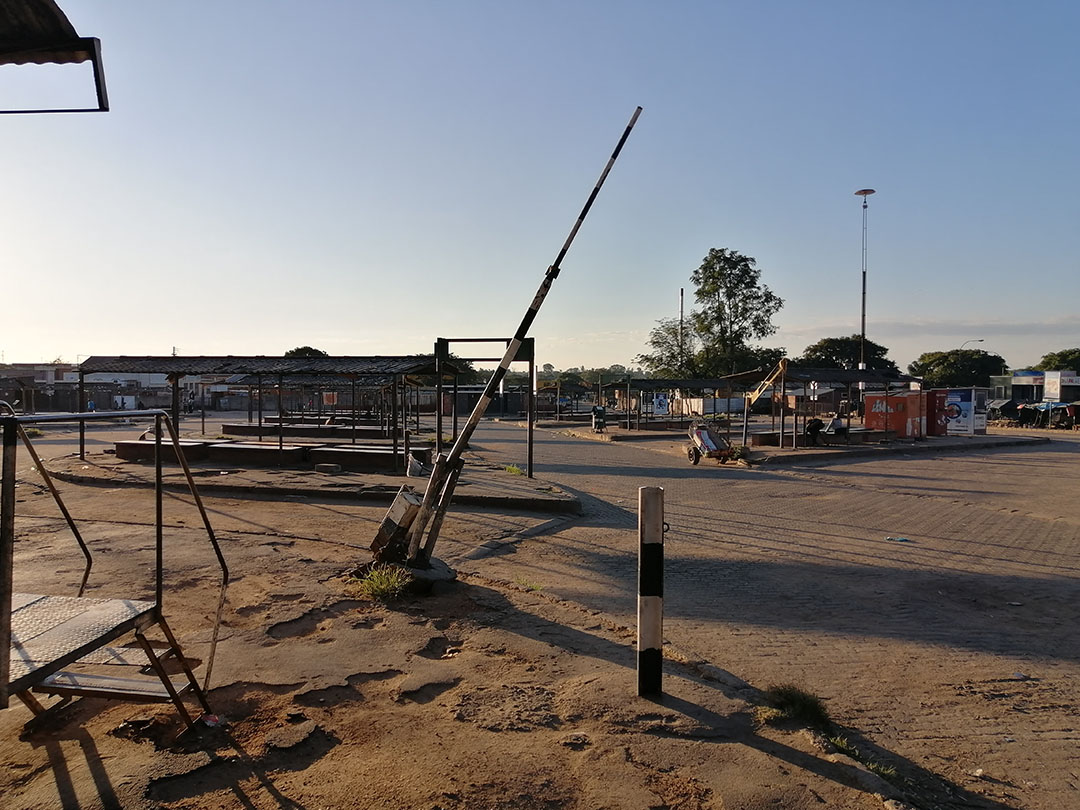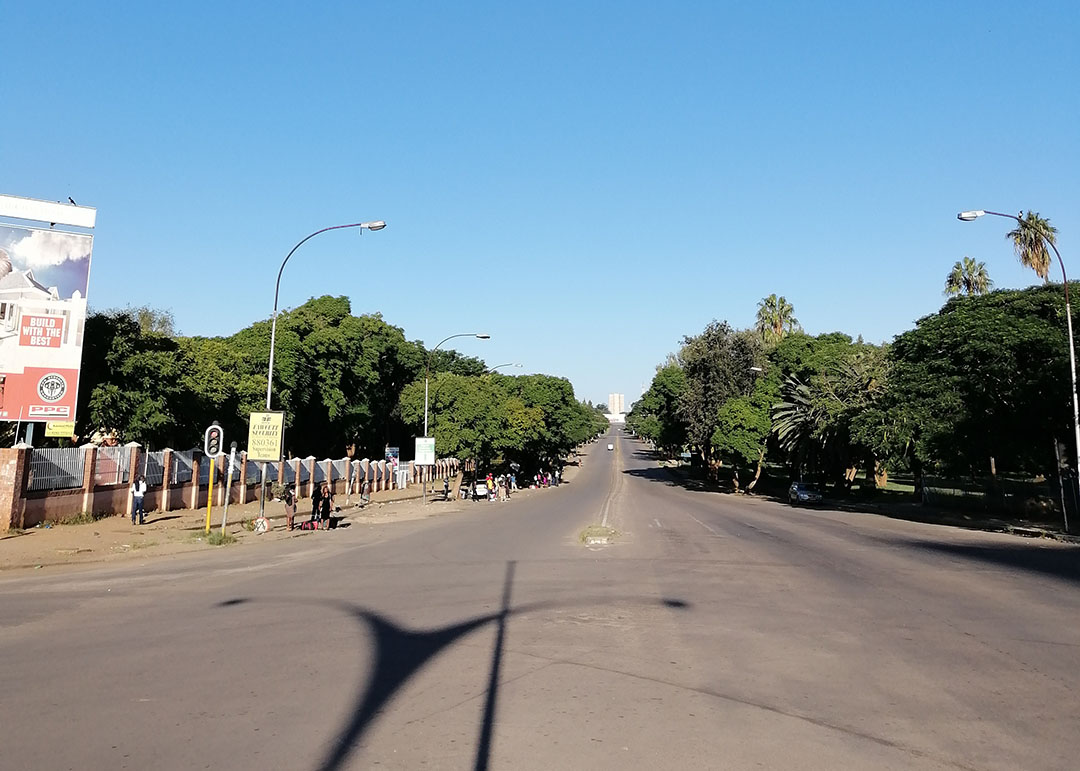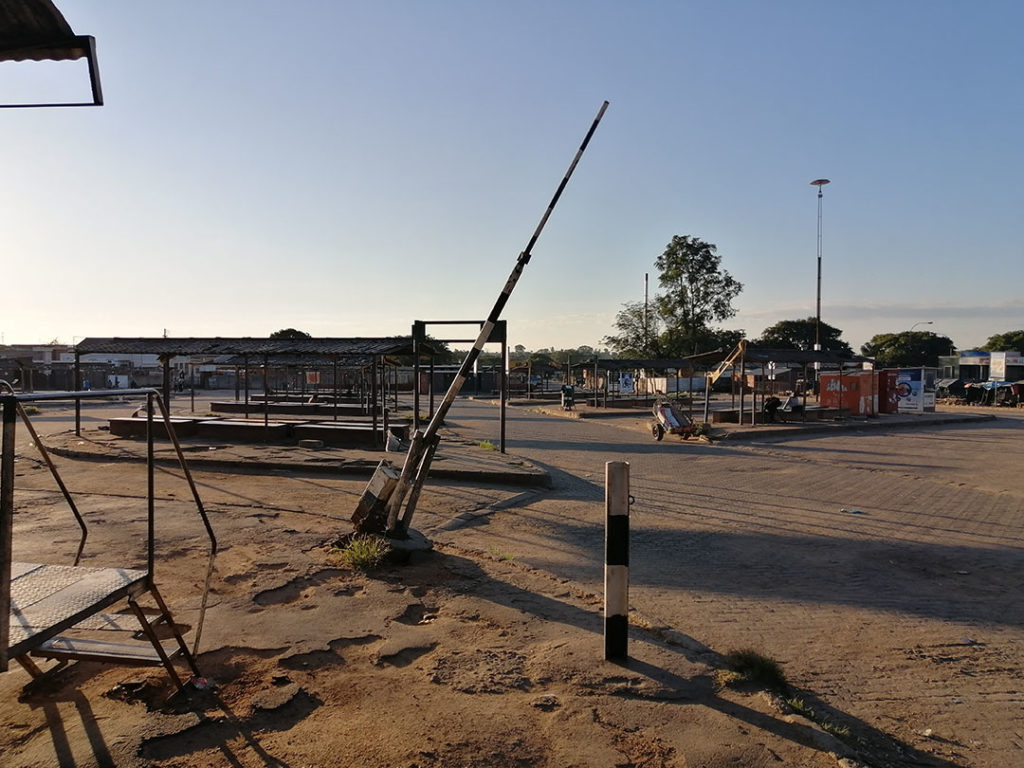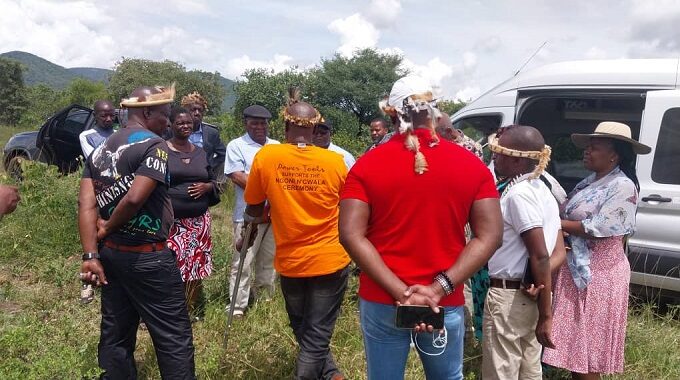Zimbabwe began a 21-day nationwide lockdown on Monday, following South Africa in implementing tough anti-coronavirus measures that are likely to hurt an economy already suffering from hyperinflation and food shortages.
But unlike neighbouring South Africa, where many citizens defied calls to stay indoors and some clashed with security forces at the weekend, Zimbabweans mostly stayed home.
Zimbabwean police have a reputation for brutality and were manning checkpoints on highways into towns and cities on Monday, questioning the few motorists on the roads.
The main opposition party, the MDC Alliance, supports the lockdown and criticised the government for not imposing it earlier.
Zimbabwe has recorded just eight coronavirus cases and one death, but President Emmerson Mnangagwa said in a televised address that citizens should take the restrictions on movement seriously.
“I want all of you to spend the next 21 days acting as if you already have the virus … Would you want to infect your friends, would you want to infect your families, would you want to infect your countrymen? Of course not. So, keep your distance,” Mnangagwa said.
He said the security forces would enforce the lockdown “with a listening ear”.
The finance ministry said it had made available 500 million Zimbabwean dollars (around US$20 million) and would unfreeze 4,000 posts in the health sector.
Streets in all the major cities were deserted. Banks, government offices and businesses were shut.
In the poor township of Mbare, the inter-city bus rank was closed and rows of wooden stalls used by vegetable vendors abandoned.
Nearby, six men sat outside their flat drinking gin. Fox Dhalu, a 36-year-old father of three, complained that some shops had hiked prices.
“The government gave us short notice to prepare for this coronavirus lockdown. We are very angry about this,” he said.
A few blocks from the police station in the middle-class suburb of Mabelreign, 73-year-old grandmother Angela Nerwande sat on an improvised stool selling vegetables on her stall.
“What will my grandchildren eat if I stay at home? “At my age I’m not afraid of dying. If they want to arrest me, let them come,” she said.
In a statement, Zimbabwe Police spokesman Assistant Commissioner Paul Nyathi said: “The law is very clear, those who don’t comply will be arrested and prosecuted.”
In Bulawayo, the normally bustling long-distance bus station, Renkini, was eerily quiet, with no bus in sight. The city’s wide roads were virtually emptied, while a police van made rounds with an officer using a loud hailer to urge the few people on the streets to go home.
The parking space in front of the Tredgold Magistrates Court normally clogged with illegal forex traders was clear of vehicles and human traffic, save for an army truck with about half a dozen soldiers sitting at the back.
Zimbabwe has plans in place to deploy the military, but presidential spokesman George Charamba said this depended on how compliance.
“Once there is evidence of self-responsibility, externally induced discipline becomes needless. Elsewhere in the world, we have seen instances of coercive state action to ensure compliance with lockdowns. Not so in Zimbabwe so far,” he said.
The situation was much more different in the high-density suburbs, however. Neighbours sat outside drinking alcohol or just chatting in Cowdray Park suburb, while young children paced up the roads as though it was any other day.


In South Africa, many of the most vulnerable people have struggled to observe the lockdown, and people in poor, overcrowded townships have continued to mingle, sometimes prompting security forces to use water cannon to break them up.
State broadcaster SABC aired videos of soldiers humiliating people, making them do squats and pulling one along the ground with a wire. Defence Minister Nosiviwe Mapisa-Nqakula said they should not use excessive force.
“We want our security services to partner with our communities to stop the spread of coronavirus,” she said.
South African police said a policeman and security guard had shot a man dead during the coronavirus lockdown.
In a bid to ease the impact, South Africa relaxed restrictions on taxis during rush hour and made early social security payments to the elderly.
“We are scared of being sick but there is nothing we can do, what are we going to eat? We are here to get paid so we can buy food,” said Maryjane Jinethi, 66, as she queued in Soweto for her cheque.
South Africa’s number of confirmed cases rose to 1,326 and three deaths on Monday.
President Cyril Ramaphosa urged people to stay indoors and respect the restrictions the government had put in place.
“Let us not make the mistake of thinking this is somebody else’s problem,” he said in an address to the nation, adding that some 10,000 field workers would be visiting homes in villages, towns and cities to screen for symptoms of COVID-19, the disease caused by the coronavirus.
In Nigeria’s capital Abuja and the main city Lagos, those who could afford to stock up queued at shops ahead of a 14-day lockdown starting at 11PM.
Botswana recorded its first three coronavirus cases, and Mozambique declared a state of emergency.
Namibian police fined and arrested at least 36 people for violating regulations designed to contain the spread of the virus.
Angola recorded its first two coronavirus deaths at the weekend, local news agency Angop reported. – Reuters






